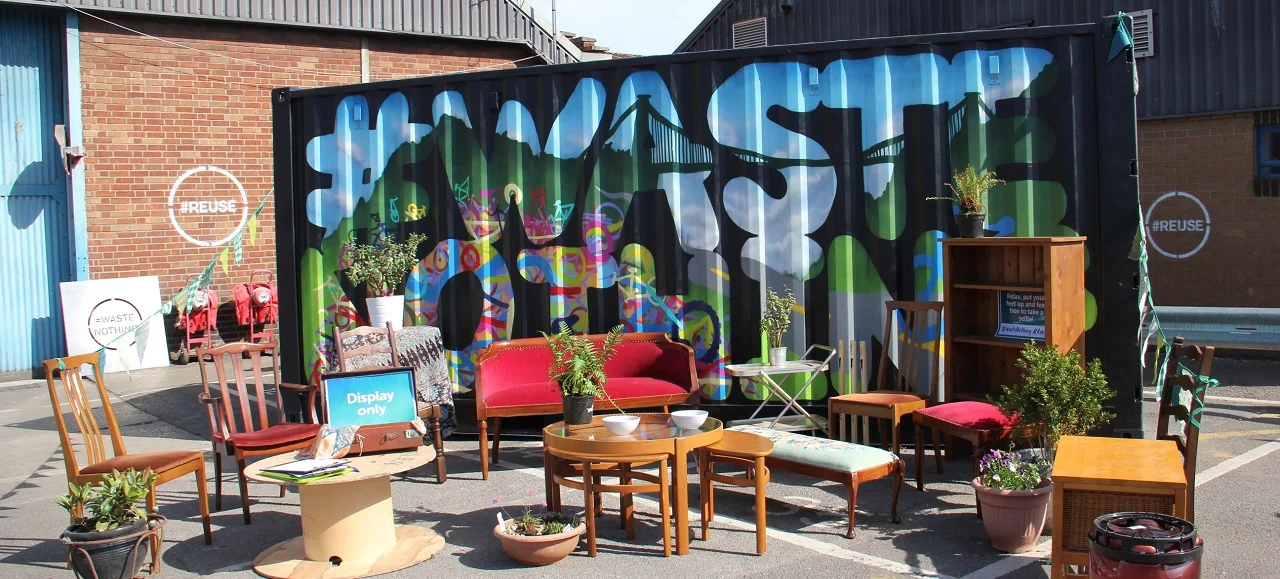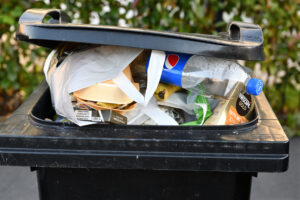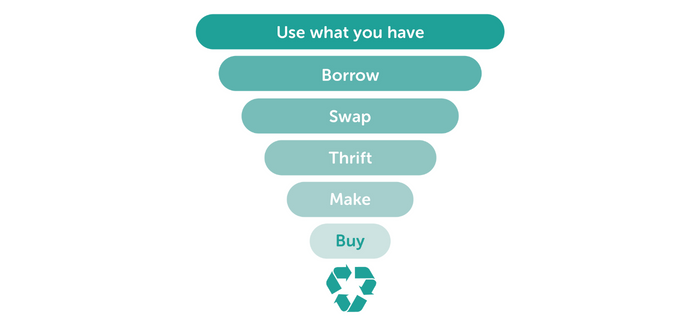Reports of the “dirtiest form of power” shows that the cleanest answer is to reduce waste in the first place

The answer to ‘dirty’ household waste processing options? Reduce waste in the first place.
Recent claims from the BBC say “burning household rubbish in giant incinerators to make electricity is now the dirtiest way the UK generates power”.
The more astute of readers (and those of us who live and work in the world of waste, recycling and reuse) will have spotted some obvious issues with this claim.
Before we go into those issues, firstly, let’s talk a bit about what the BBC mean when they say, “burning household rubbish”.
Energy from waste (or EfW)
General waste from UK households should be waste that isn’t recyclable, but unfortunately, this is not always the case. In order to make the most out of what you put in the bin, many local authorities (like ours) send that waste to local Energy Recovery Facilities (ERFs) to be processed and turned into electricity that powers local homes. This option is much less environmentally harmful than sending non-recyclable waste to landfill.
The process involves burning the waste at incredibly high temperatures, under carefully controlled conditions. This minimises any negative outputs such as emissions and contaminants.
As one of our local ERFs, Viridor, explains: “The process is extremely efficient, robust and safe, with emissions treated to meet the stringent European Industrial Emissions Directive, which is strictly enforced and monitored by the relevant regulatory authority. This is the Environment Agency (EA) in England, Scottish Environment Protection Agency (SEPA) in Scotland and the Natural Resources Wales (NRW) in Wales.”
So, there we go. Energy recovery is a way of disposing of waste, which allows us to gain a resource (electricity to power local homes) in the process.
Why, then, is it wrong that the BBC has simply labelled the method as “dirty”?
Issue 1: The waste issue
We have a waste problem.
Not just in Bristol, not just in the UK, but across the globe, human beings are consuming more than the planet can sustain.
In the Bristol Waste sustainability team, we like to talk about the waste hierarchy. This refers to a list of methods for dealing with waste, going from the most sustainable (and least damaging to the planet) to the least sustainable.
A snapshot of the waste hierarchy is familiar as the old phrase: reduce, reuse, recycle. Reducing is the best option for us, for the environment and for our planet. It means unnecessary items aren’t produced in the first place. We avoid the carbon impact of generating waste items at all.
Next up is reuse. By using things again instead of buying new, we massively reduce the impact of our consumption on the environment. We also reduce the amount of waste that ends up in our bins!
Then we have recycling, which is a great way to reduce the amount you’re throwing away as general waste. It also minimises the need for virgin materials and reduces the carbon requirements of our consumerism.
After these three comes waste. The dreaded “away” we so flippantly refer to when we talk about throwing things away.
The horrible truth?
There is no “away”.
All that waste has to go somewhere.

Issue 2: The last resort
Recently, the UK celebrated becoming entirely coal-free for fuel. It was a landmark moment in our journey to becoming a more sustainable society.
This meant that last place in the “dirtiest way to generate electricity” competition has withdrawn from the race. The unpleasant title is now up for grabs.
Whilst we’re talking about dirtiest, we should also consider the alternatives when it comes to disposing of general waste.
The other options are very limited. It’s basically energy recovery or landfill.
By choosing energy recovery over landfill, we reduce the CO2 emissions. Compared to landfill, energy recovery saves around 0.05 tonnes of CO2e per tonne of waste.
In a year, an ERF will divert 320,000 tonnes of non-recyclable household waste from more polluting landfill every year. It generates over 300 GWh of electricity per year, enough to power 84,000 homes.
Issue 3: The energy issue.
Electricity powers so many areas of our lives. Our homes, our businesses, hospitals, schools… everything. That electricity has to be produced somewhere.
There are lots of much greener ways to produce electricity, but whilst we are producing general waste (which, again, should be non-recyclable waste only) we might as well be getting something from it!
The solution
We need to reduce our waste.
Is energy recovery from waste a perfect solution? No. Is it a good option for where we are? Yes.

So, what next
With changing policies in the coming years, such as Extended Producer Responsibility (EPR), and the potential of upcoming Deposit Return Schemes (DRSs), Emissions Trading Scheme (ETS) as well as an uptake in local authorities reducing frequency of their general waste collections eg. fortnightly to 3-weekly, there will be a notable reduction in the household waste that we are producing.
To be part of the positive change and help reduce the general waste you produce, you can find tips and hints in our 30-day Waste Nothing Challenge! Why not book a talk at your community group, school or youth club from our community engagement team? We can talk about recycling, refuse and litter for days and love nothing more than having a chat.
You can also get lots of handy information in our blogs: News and events – Bristol Waste Company
